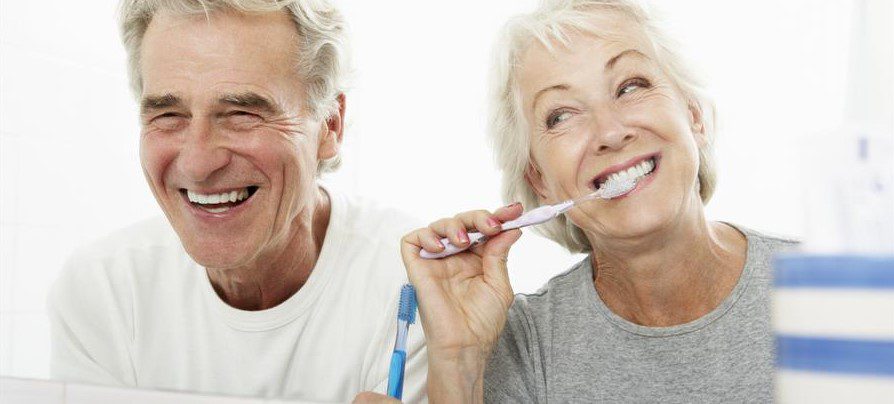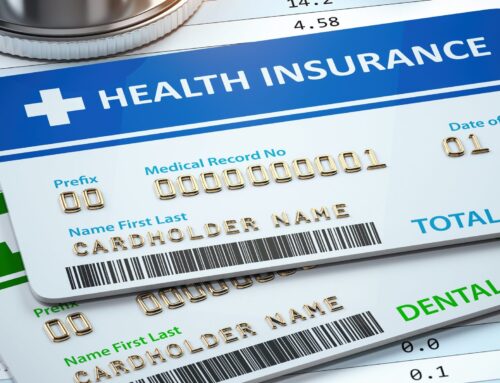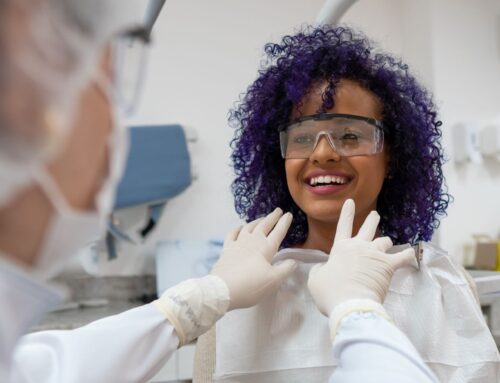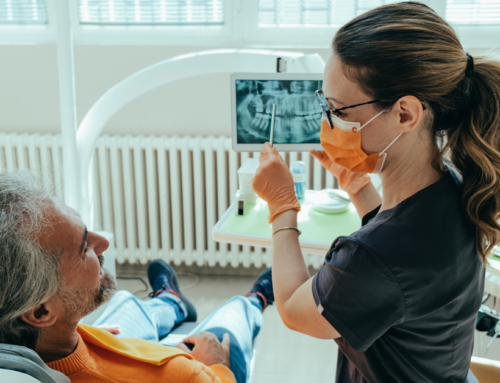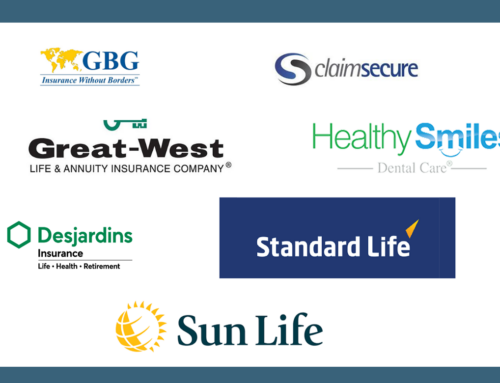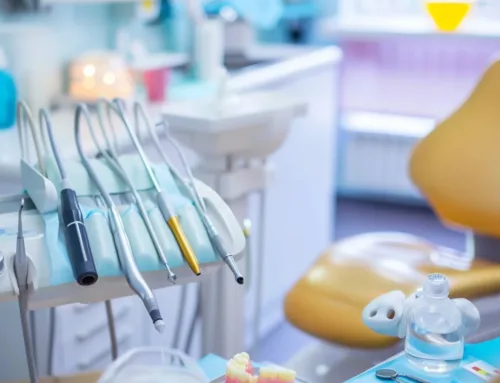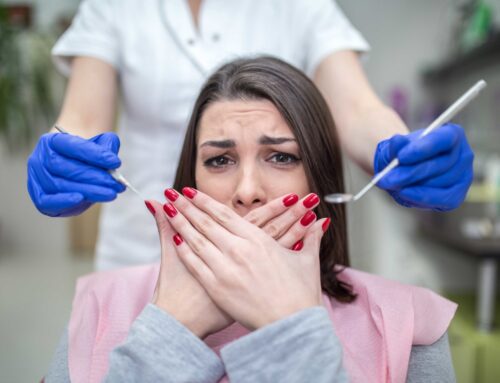How to Keep the Aging Mouth Younger
Aging is never fun but it is a fact of life that we all must accept. As we age, we should place more of an emphasis on caring for our bodies, including our mouths. Pain related to our teeth, gums and jaws can cause a lot of discomfort and prevent us from going about our daily lives.
So, how does someone over the age of 45 care for their mouth and be more cognizant of potential issues they can encounter? There isn’t one answer but there are a ton of simple practices that you can incorporate into your routine to make a big difference.
The reality we all must live with is that our oral health requires more care in our later years. The practices that we’ll share are best adopted early in life so you can steer clear of problems like gum disease, tooth decay and oral cancer that can rear their ugly heads. Good habits in your 20s and 30s could set you up for a happy smile during middle age and onward into your senior years.
Let’s look at the typical oral health issues that many people encounter as they age. We’ll also look at the best preventative measures in addition to important care methods a person can administer to their mouth, gums and teeth as they age.
The Decline of Teeth and Gums
It wasn’t long ago that dentures were inevitable for people of a certain age. Essentially, it was considered a conclusion that even those with a stringent dedication to oral health would experience dental issues. One reason for this was the lack of products and treatments that were effective enough to curb tooth and gum decay. Today, a high percentage of older people suffer from serious oral issues some of which result in tooth loss or even oral cancer.
Teeth are sturdy and strong but they are not invincible. Teeth withstand daily gnawing, grinding and exposure to acidic food and drinks. Over time, enamel weakens which opens the door to a host of potential problems. Additionally, gums recede, exposing the softer tissue underneath and could result in cavities. Bottom line is that teeth and gums become vulnerable to the things they used to fend off with ease.
Teeth thin over time and can even crack. This causes them to turn yellow because of years of consuming tobacco, coffee, tea, red wine and certain fruit like strawberries and beets. You can use a toothpaste that features a whitening agent but if you are over a certain age, their impact will be minimal. In these cases, cosmetic dentistry is your best bet to regain your pearly white smile.
Beware of Gum Disease
Periodontal diseases, or gum diseases, is the foremost cause of tooth loss in older adults. This can result in teeth being wobbly, receding gums and deteriorating jawbones. These issues can lead to loose teeth and a variety of other severe oral issues. Most periodontal diseases are treatable if caught early. If left uncared for, it can cause a lot of pain and discomfort during the second half of one’s life.
The Bigger Picture of your Health
There are schools of thought and supporting evidence that suggest a person’s oral health contributes to the bigger picture of overall health. Most don’t realize the correlation between gum disease and inflammation and debilitating health problems like diabetes, strokes, and certain respiratory ailments. The prevailing thought from the scientific community is that gum infections create bacteria that enter the bloodstream and triggers dangerous and potentially fatal inflammations in organs and tissue.
Our health tends to come more into focus as we hit middle-age but it’s never too early to commit to your oral health and recognize how it informs the bigger picture of your life.
Early Adoption of Oral Care
While there are treatments designed specifically for the 45 and older crowd, the real benefit comes from early adoption of oral care practices. Most require a daily or weekly commitment, which can be a turn off for some people despite the tangible value.
The foundation of the best oral health routines is brushing, flossing and visiting the dentist twice a year for regular checkups. These are the basics and you should adhere to them in a strict manner. It is recommended that you use a toothpaste that has fluoride as this can restore tooth enamel and remove plaque. These can slow or even stop tooth decay or, in the most successful cases, help undo the damage.
We also recommended the following tools:
- Electric toothbrushes which provide exceptional cleaning and a vast improvement over standard toothbrushes.
- Waterpicks to floss teeth with twice the effectiveness of tape.
- An alcohol-free spray to keep your mouth moist. Mouths tend to dry as we age and a spray like the one by Biotène can provide relief.
Any dentist will tell you that you need to start early. Like anything with respect to your health, the earlier you form these habits the more likely you will continue to do them and reap the rewards later in life.
Helpful Tips for the Aging Mouth
Vigilance with respect to oral hygiene is important as you age. As you approach 50-years-old you really need to bear down on the care you provide for your mouth, gum and teeth on a daily basis.
Here are some tips you should immediately adopt:
- If you haven’t been brushing twice a day than start doing so immediately.
- Floss at least once a day or even after every meal.
- Rinse with an antibacterial mouthwash twice a day. This can reduce plaque and the bacteria that leads to gum disease.
- Book checkups with your dentist every six months.
- If you grind your teeth, have your dentist fit you for a nightguard.
This should be the bare minimum for older people who are determined to care for their mouths. It’s always a good idea for older people to sit down with their dentist and ask how you can go above and beyond the bare minimum. They can equip you with strategies that will keep your teeth and gums nice and strong despite your age.
A dentist will be even more prudent with their patients who are senior citizens. If you are over 65-years-old, you may be asked the following during your examination:
- When did you last visit the dentist and why?
- Have you experienced any pain in your mouth or noticed any changes?
- Do you have any loose teeth?
- Are your teeth more sensitive than usual?
- Have you experienced any difficulty with chewing or swallowing?
- Have you experienced any bleeding or swelling in your mouth?
These questions help inform a dentist and guide them toward conducting the examination and providing the care you need. Remember, it’s never too late to improve your oral care or to commit to an oral hygiene routine that will prevent future problems.
Book an Appointment Today!
At Georgian Dental®, we are experienced and well equipped to work with patients over the age of 45 to make sure their oral health is intact and that they have access to treatments and practices that will lower the odds of mouth decay.
If you’re looking for a new dentist in the Barrie area, call or complete this short form to book your initial consult.
Appointment Request
If you’re interested in any of our procedures, and would like to meet with one of our dentists to discuss options, costs and get additional information, complete this short form and we’ll give you a call to arrange for a no-obligation appointment at our Barrie clinic.
